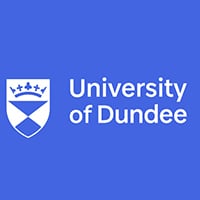Language, self, and society – Linguistic inequality and beyond
Position Details (PhD Program)
Our highly interdisciplinary Language, self, and society – Linguistic inequality and beyond project at University of Dundee attempts to address complex interwound relationships between language, individuals and societies.
Context of Language, self, and society – Linguistic inequality and beyond Language, self, and society – Linguistic inequality and beyond project at University of Dundee University of Dundee
To address the question, one could explore situations in which individuals are prevented from using a language in a cognitively and/or socially optimal way (e.g., non-native international students, refugees, people with language-related disorders).
Another approach would be to focus on potential biases and inequalities derived from language-based variations: e.g., speakers’ accents of various types (e.g., socio-economic, regional, first-language based) could lead to implicit prejudices or societal inequalities. In the current globally connected, yet disparate world, it has been becoming more urgent to address these issues with multidisciplinary theoretical and methodological approaches.
- In such settings, language users’ objective and/or self-perceived proficiency level of the target language could influence various critical domains of their lives (e.g., academic achievement, self-esteem, difficulty in assimilation).



 University of Dundee
University of Dundee